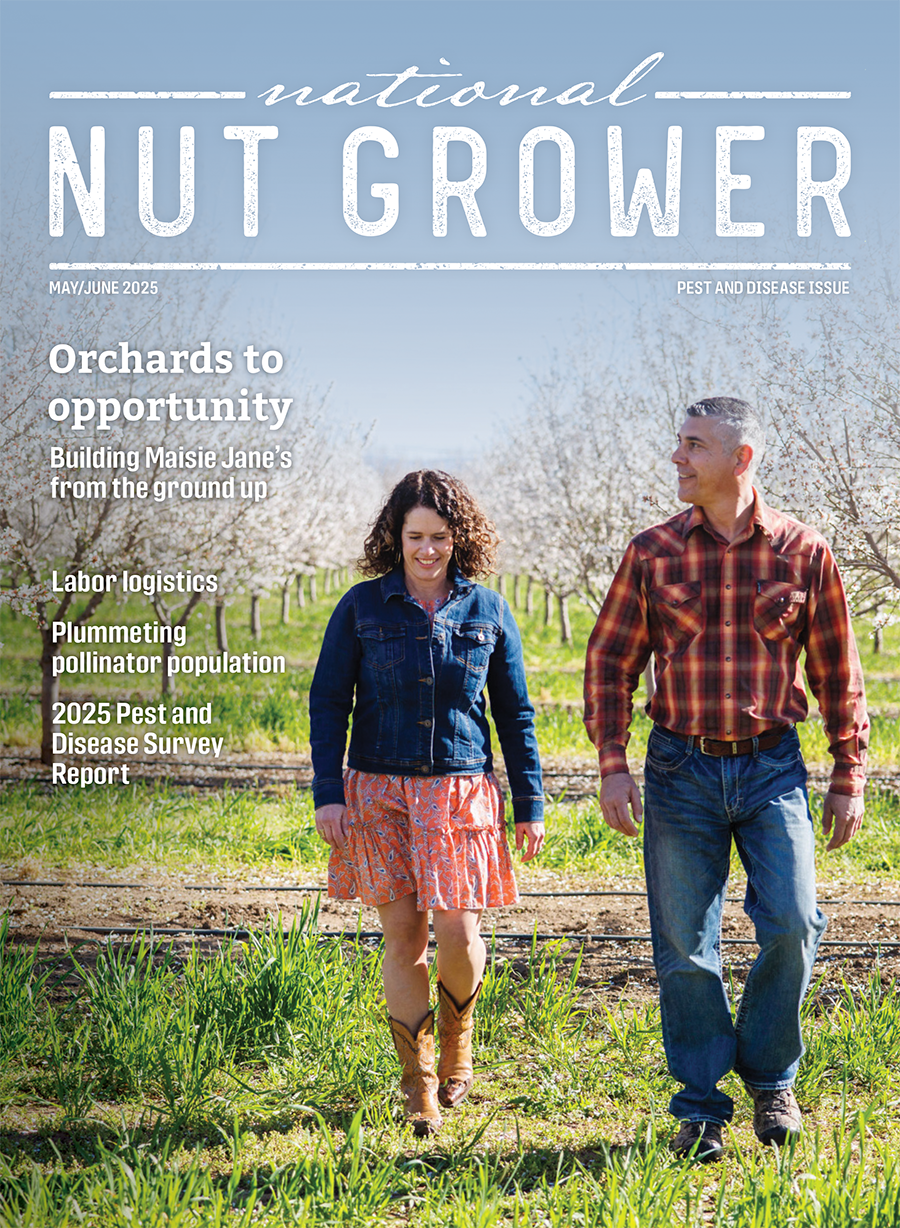Jun 25, 2018Verdesian points to resolution on EU MRL based on new research
Exporting tree nuts and other specialty crops to EU countries has just gotten simpler for growers in California and throughout the U.S. with an increased maximum residue level (MRL) limit EU ruling based upon residue data developed by IR-4 and almond, pistachio, and walnut grower groups under a USDA grant with support from Verdesian Life Sciences.
Confirming Verdesian’s assessment, the research findings on residue studies on almonds, pistachios, and walnuts reviewed by the EU showed no short-term or lifetime consumption risk of foods treated with phosphite based fungici des exceeding the current MRL limit. Further, the consumer exposure assessment for 27 EU consumer groups was acceptable to the EU for consumer safety and consumption based upon the toxicological properties analysis assessment.
des exceeding the current MRL limit. Further, the consumer exposure assessment for 27 EU consumer groups was acceptable to the EU for consumer safety and consumption based upon the toxicological properties analysis assessment.
According to a news release, the revised ruling has a significant positive impact on California nut, citrus, fruit, and vegetable producers, specifically those exporting almonds pistachios, and walnuts, with over three million acres of nuts grown in California alone, many protected by Verdesian’s phosphite technologies.
The EU Authority upon review of research submitted by Verdesian Life Sciences, IR-4 Specialty Crops Project, Almond Alliance of California, Central California Almond Growers Association (CCAGA), and California Walnut Board contributed to the new assessment and amended ruling. The IR-4 Specialty Crops Project is supported by the United States Department of Agriculture, National Institute of Food and Agriculture, which provides safe & effective pest management solutions for specialty crop growers.
Verdesian Life Science’s fungicide, Fungi-Phite, a phosphorous acid salt-based technology for suppression and control of Phytophthora, Pythium and Downy Mildew, contributed to the research. For more than 25 years Verdesian Life Science’s phosphite technology contained in Nutri-Phite has been the standard and the source for phosphite plant nutrition.
Prior to this EU amendment, the previous EU ruling resulted in many countries using default MRL tolerances, putting the burden on California and other US state grower exporters to meet strict MRL standards by limiting phosphite based nutritional and biocontrol solutions.
The new EU ruling clarifies and raises MRL levels with phosphite based nutritional and biocontrol solutions, giving specialty export growers access and flexibility to apply these solutions as needed without fear of trade barriers due to previous MRL levels.
What you need to know:
•The EU Commission’s new finding and amendment clarified “Neither the lifetime exposure to these substances via consumption of all food products that may contain them, nor the short- term exposure due to high consumption of the relevant products showed that there is a risk that the acceptable daily intake or the acute reference dose is exceeded.”
•In the United States, pesticides for tree nuts, citrus, pome and stone, berries, vegetables, pulses and other like crops treated with flubendiamide for disodium phosphonate are acceptable based upon labeled use of those products within with new higher MRLs limit levels.
•The modifications to the MRLs requested by the applicants were acceptable with regard to consumer safety on the basis of a consumer exposure assessment for 27 specific European consumer groups.
•EU Commission accepted the application claim submitted by Verdesian Life Sciences and the other participants that the authorized uses of those substances on crops intended for export to countries following the EU’s initial MRL residue level ruling would lead trade barriers for the importation of those crops.
•The most recent toxicological properties of the substances were taken into account.
•The new ruling is in accordance with the opinion of the EU Standing Committee on Plants, Animals, Food and Feed.









